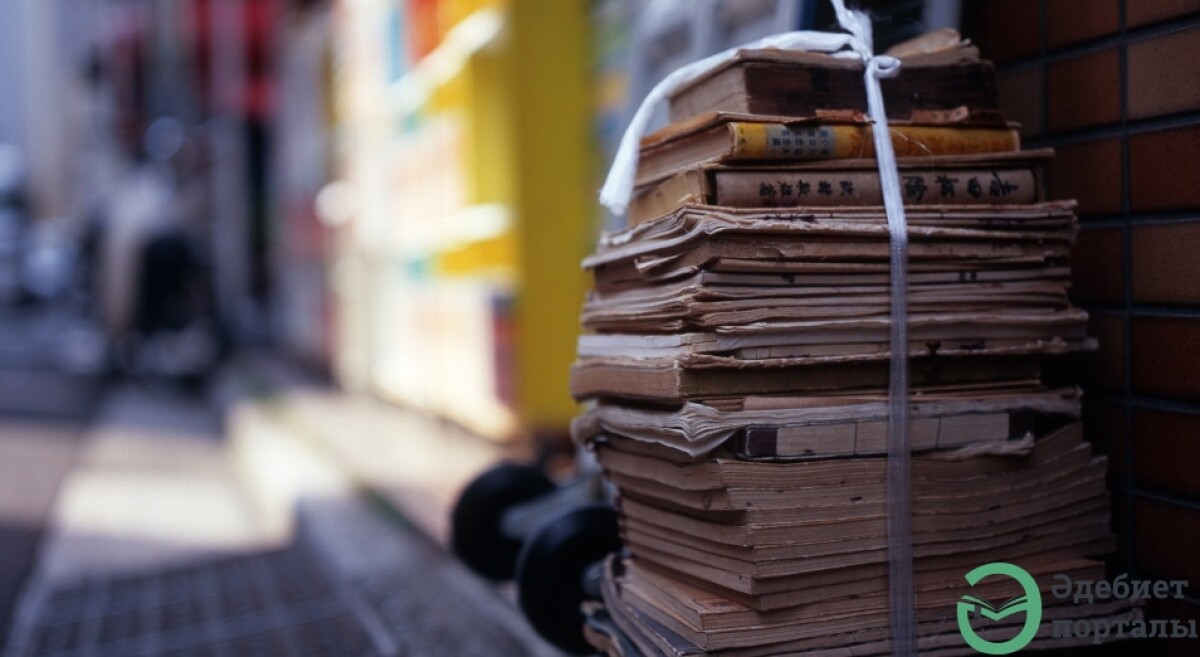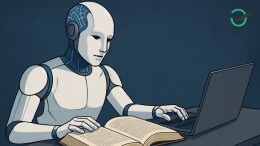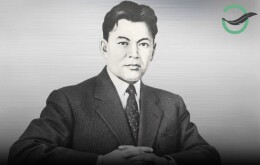“An author of a book is the author, and society is the creator of its destiny”, Victor Hugo says. Another similar statement was made by an eighteenth-century English critic, Samuel Johnson. “We value the author with a bad book while he is alive, and only with a good book after he dies”, he said.
Today, let's talk about the books that were rejected by the author because of the negative fate, or this is a good thing, you cannot go back to it, forget about it, the author of the pen himself. And it's not uncommon to see it as irrelevant, neglectful, and slippery. Of course, if you are a self-respecting reader.
This is not a surprise in Kazakh literature. However, it is not the default thing for the Kazakh literature, that is recognized legally (understand it as a member of the Union of Writers of Kazakhstan) and has about a thousand writers, to be heard in one or two days.
We heard from the famous writer, scriptwriter Smagul Elubay about getting rid of the sensation. The author, who left his mark on the Kazakh literature with his trilogy “White House” on the theme of famine: “I completely give up from my two books, “The Way of Sattar” and “A Light of the Candle”, that I wrote earlier”, he said. Of course, it is an obvious thing that the legacy of the senior writer is called “White House”, that we have just talked about.
As we said at the beginning, we will repeat it again – there are many cases in the history of literature when a writer refuses to write an original work, that he wrote with tears in his eyes. For example, in 1852, Gogol burned the second book of his great work – “Dead Souls” in the manuscript form. The same book, about the same incident, Nikolai Vasilich said to the housekeeper Semen: “I thought about copying it in the notebook and distributing it to my friends as a souvenir...”.
Another world literary giant, Frans Kafka, wrote in 1924 to his journalist friend Max Brod: “When I die, you will burn my entire archive”. However, due to Brod's work “Abuse of trust”, the world literature has survived this threat.
During Stalin's repression, an attempt was made to erase the name of the author from his book, who was considered an “Enemy”, and to erase it from public view. For example, a collection of poems by Ibray Altynsarin, published in 1935, was compiled by Saken Seifullin. But when Saken became an “Enemy of the people” in 1938, a campaign began to erase his name from the memory of the country. The result is the that the person who compiled the above-mentioned Y. Altynsarin’s collection of poems was covered in blue ink. If you do not believe, go to the Book Museum in the National Library of the Republic of Kazakhstan. The collection is in the same cluttered state of the exhibition there.
It was unlikely that Gabit Musrepov would be a writer. In 1926, he graduated from the faculty of labor in Orenburg. From 1926 to 1927, he studied at the Agricultural Academy in Omsk. From 1927 to 1928, he worked as a teacher at the Forestry College of Schuchinsk. You see, a working man who turned to a completely different field and channel.
However, in his autobiographical story, the author describes who inspired him to pursue the literature: “Sabit noticed that I was passionate about books, that I could criticize more or less, and told me to start writing. I lived with Sabit in Saken's dark room. I started reading the poems by Beimbet and Saken in the newspapers and magazines. I saw how Beimbet's creation “Sign of Shuga” was written beautifully. Actually, I wanted to write from the inside, but I couldn't”.
Gabit Musrepov, whose first work, the essay “Wild waves”, was published first in the wall newspaper of the faculty of labor, made an immeasurable contribution to the professional formation and development of Kazakh prose.
Why do these two or three paragraphs cross the line? Let's say. If you want to understand briefly, a national writer of Kazakhstan, academician of the Academy of Sciences of the Kazakh SSR – the hero of socialist labor, in short, the mountain figure Gabit Musrepov was the first writer in the history of Kazakh literature who consciously renounced his work consciously. The next successor entrusted to his brothers only three volumes of his works, such as “Ulpan”, “Kyz Zhibek”. The rest of my works, such as “Kazakh Soldier”, were rejected as the modern, written creations on the path of communist politics.
“I visited Abdizhamil Nurpeisov, when he was in the hospital. It turns out that “Blood and Sweat” was being reduced at that time. I will give advice that only this version will be published here”. These are the words of uncle Smagul Elubay.
We would say that this action of the old classic is a responsible approach to the tastes of modern readers. After all, today's man, who can hardly watch a 10-20 second video on Instagram, will be shocked to see “Blood and Sweat” like the brick.
There is one more thing that makes us think about the Kazakh-Soviet literature. The same novel “Blood and Sweat” was published in 1961 in 20 thousand copies. The second book of the trilogy – “Turmoil” was published in 1966 in 48 thousand copies. Then, the process starts all over again. The first book of the famous work – “Twilight” was published in 1970 in 41 thousand copies. The second book is “Turmoil”. In the same year, there were 41 thousand copies. The third book is “Destruction”, was published in 1970 with 41 thousand copies. A reader may not be satisfied with this, the trilogy was reprinted twice in 1976 with 60 thousand copies and in 2004 with 10 thousand copies. The Russian translation of the trilogy “Blood and Sweat”, that is on the shelves now, was published in 1980 with a circulation of 200 thousand copies. Then, the longest number is 462 thousand. It is an equivalent to the people of Karaganda.
How would millions of readers, who have read so many books in such an unobtrusive and unobtrusive way, evaluate the author's actions?
In Kazakh, in his time, his works were published in thousands of copies, the world was in turmoil, and now there are so many criminals who can't keep up, and they are on the shelves. Moreover, writing a book about the grandfather of an activist or about his fruitful years has become a retirement fashion. And it does not occur to the writer that the reading of it does not exceed the family.
We can tell you that hundreds of thousands of trees are cut down to make a paper for the millions of books. Need specific evidence? Please. 1 book is made of 5 kg of the wood. The average weight of a tree is 700 kg. That is the raw material of 140 books. Let`s suppose how a Kazakh author publishes a new book in 1500 copies. Thus, it will destroy 11 trees.
This is just the beginning. There is an ecological catastrophe behind every tree that is cut down. In the meantime, let us consider the following examples. One tree absorbs the gas from the 1,000 kilometers car ride per year and releases 100 square meters of oxygen. This amount of oxygen is enough for 4 people to breathe for a year.
Poplar, that is 25 years old, absorbs about 44 kg of carbon dioxide in 5 months. One juniper tree absorbs on average more than 1 ton of carbon dioxide per year and releases 1.5 thousand liters of oxygen. Here's to you, the environmental issue!
If we deviate from the topic, we apologize in advance. Everything around you is digital. Technology is evolving at the speed of light. At the time, when your child can go to school on a tablet like the birch bark, you will be amazed at the government that publishes the textbooks like a diaper ...
Being satisfied with so much information, would you be interested in the future of volumes, packages, shelves? Then, we would like to invite you on an excursion to a paper mill near Nur-Sultan.
A mechanism of processing the paper is very simple: first, the cut paper is first cut and then it chopped finely. Then, the cut paper is thoroughly mixed with a chemical mixture called the grated boric acid and borax. The dust is completely absorbed by stirring. Finally, the fine, dry, dust-free mixed eco-cotton with the chemical mixture is packed in a special paper bag. Then, they close their mouths, stack them on top of each other and make them comfortable in order to put together. The weight is also easy. Only fifteen kilograms.
Now, what are the advantages of eco-products made of this paper? You bend your fingers one by one, let's count as if we were on the string. First of all, neither cockroaches nor mice enter the material with special chemicals. Secondly, it does not burn. Third – it does not rot. Fourth – there is no harm to human health. Fifth – it is the quality. For example, a 20 cm thick eco-board has a heat storage capacity of 60 cm for the brick wall. Lastly, it is a cheap building material.
We would like to say that today no one reads, because it is possible to grow and use the volumes, packages, shelves, that do not have the content and ideological meaning.
Now, a few words about the book that cannot be corrected under any circumstances, not a single letter should be abbreviated there, and it should be read while looking for a sensible Kazakh.
This book is a documentary story, that is called “The Chronicles of the Great Plague”. The author is Valeryi Mikhailov, the laureate of the International Literary Prize “Alash”.
The President Kassym-Jomart Kemeluly in his article “Independence is the most precious thing” said: “100 years have passed since the first stage of the catastrophic famine – 1921-1922, that killed millions of people and forced the survivors to flee. If we hadn't fought due to this plague, our population would have been many times larger than it is now ...”
“The Great Chronicle”, as the name mentions, is a tragic story of you and us. The genocide against the Kazakhs is the bitter reality of the famine of the thirty-second years of the last century, you can learn from this book.
We said more, we said less. But in any case, our words are ours. And that`s over.












